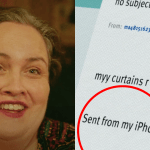
Priyanka Chopra, one of India‘s most popular celebrities and the star of nearly fifty films, has spent the past several years crossing over into Hollywood, headlining the drama series Quantico and playing the villain in the recent Baywatch.
Though she spent time in the US as a teenager, Chopra says she has found it “extremely hard” to break into the industry there, telling an audience at the Toronto International Film Festival that she once lost out on a major role for being “too ethnic.”
The actress said that before nabbing the part in Quantico, which was initially written for a white actress, she rejected more than two dozen scripts containing characters that were “a stereotype of what America would think an Indian would be, like My Big Fat Punjabi Wedding.”
Even her success in Quantico did not guarantee more work in the US – Priyanka Chopra was the first South Asian actress to headline an American TV drama series and pick up a People’s Choice Award, but she still found herself being rejected from role because of her ethnicity.
She told the TIFF audience about how her agent broke the news of one particular rejection, saying:
First of all, everyone has an ethnicity. Even Caucasian is an ethnicity. But I was “too ethnic” for the part and it was a mainstream American part. And I remember my agent being – he didn’t know how to tell me that. He was really skirting the issue and I said to him, ‘just tell me.” And he said, “Priyanka, I don’t know how to say that in 2017,’ that this was actually a reason!” They could have at least made up a reason! Don’t be so on the nose about it! But they said the reasoning that was given was that, “You know, we’ll have to explain how an Indian girl is this character in the mainstream. We’ll have to explain where her parents came from and what was she doing in America.”
Priyanka Chopra said that she will continue to fight and push for roles wherever she can, in hopes of making things easier for future generations of performers. She continued:
I’m really taking it very personally. And whether it happens for me or it doesn’t, I really do hope for the future generation that they don’t have to deal with this because of what my colleagues and I will do. I want to stick my feet in and say, “No, this is not what we’re going to stand for. Look at the world around you. Look at North America right now. It’s a melting pot of cultures from all around the world. You cannot turn around and tell one kid or one person or one type of person because of the colour of their skin that they need to be treated a certain way. Yes, they’ve done it for centuries. But come on now!”



